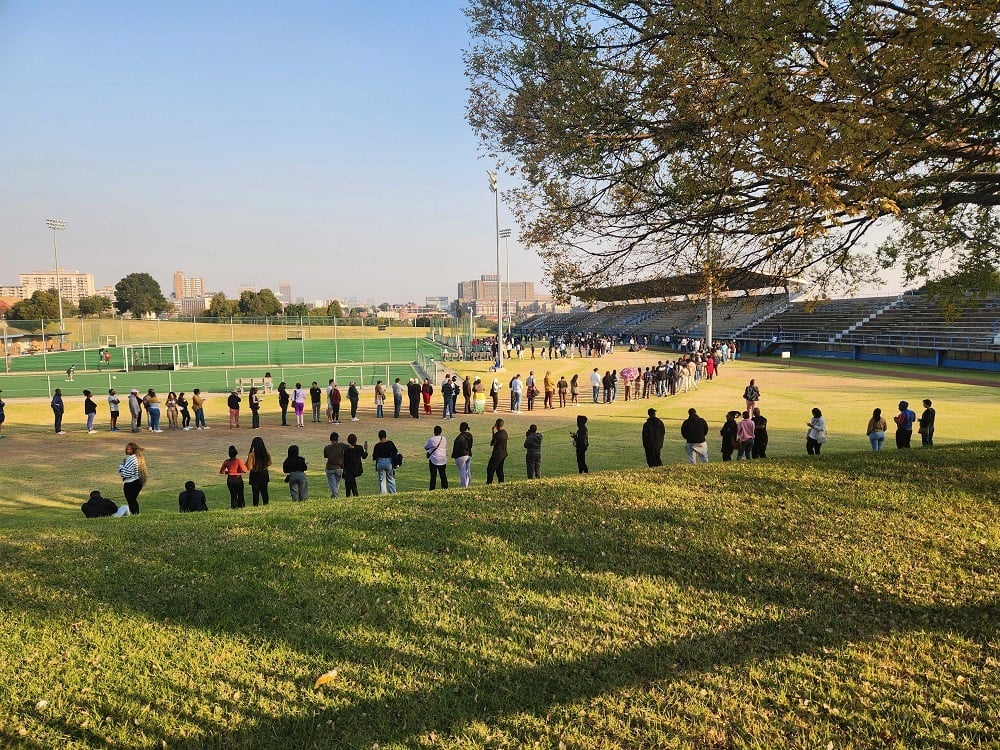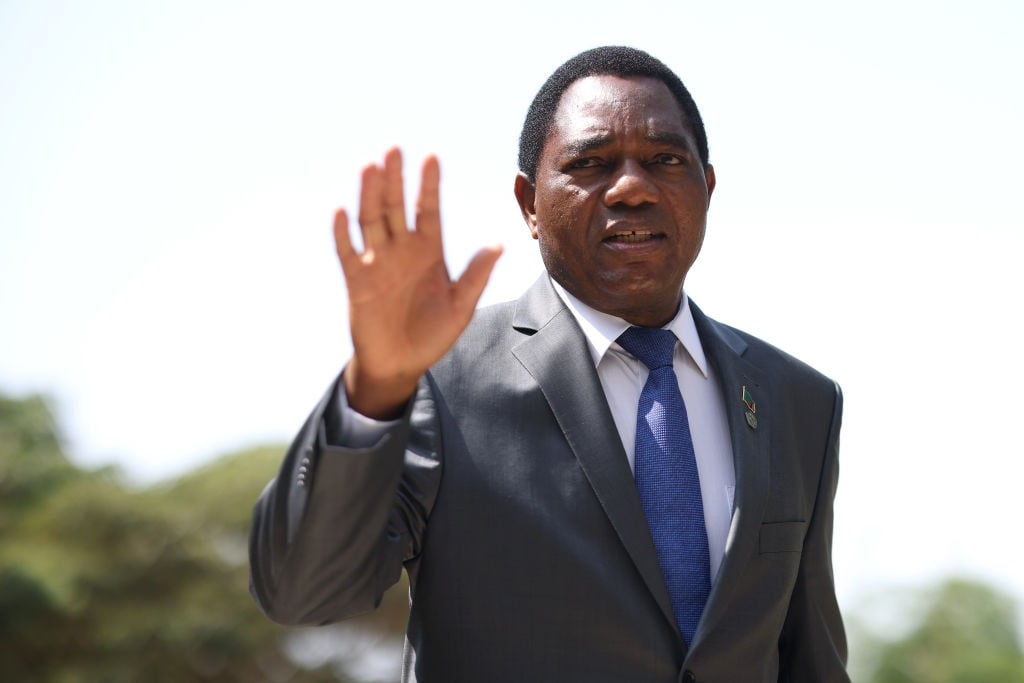
Students queuing at the Wits Education Campus to vote. (Alex Patrick/News24)
- More South African voters were turned away on Wednesday than in previous elections.
- The IEC detailed several reasons voters could be refused their democratic right to cast a vote.
- If you want a detailed response to why you were refused a vote at a particular voting station, the IEC requests that you send it your ID number and the details surrounding the incident.
More South African voters were turned away in this year’s election than in previous years, some observer missions have confirmed to News24.
The Electoral Institute for Sustainable Democracy in Africa said the top two reasons given were “voters being at the wrong polling station or district” and “voters not appearing on the voters’ roll”.
The Institute of Election Management Services in Africa said it received reports of voters being found to be registered elsewhere and Section 24A applicants not appearing on the voter’s roll of some stations.
In terms of Section 24A of the Electoral Amendment Act, a voter may nominate a voting station outside of their voting district only if they notified the Electoral Commission of South Africa (IEC) in advance, during the timeframe specified in the election timetable – in this case by 23:59 on 17 May 2024.
READ | Glitches and disruptions: Political leaders slam problems plaguing voting processes in Durban
Several News24 readers also voiced their anger at being turned away from voting stations for various reasons, including not being on the voters’ roll at a station previously voted at, receiving confirmation of a voting station change but not appearing on that new station’s roll on election day, being told they had already voted when they had not, and first-time voters not appearing on the voters’ roll.
The same was seen on social media and various community groups, where frustrated citizens sent angry messages about registering, going to their assigned voting station, and being told they could not vote there.
IEC responds
On Thursday evening, after numerous questions from the media and those who could not vote, the IEC offered an explanation for the various reasons voters may have been turned away.
IEC national general manager of operations Granville Abrahams told News24 – at the commission’s national results operations centre at Gallagher Convention Centre in Midrand, Johannesburg – that the only way to determine precisely what went wrong was if he had proof in the form of a voter’s ID number.
Abrahams said:
If I have their ID number, I can get that entire audit trail to find out how that happened.
If you or someone you know were not able to vote, the IEC requests that you to send it your ID number as well as the details of what happened and where.
The IEC can be emailed here or contacted on: 0800 11 8000. You can also find a list of various other IEC contact details here.
Many possible scenarios
News24 showed Abrahams a screenshot of a person who requested a change of voting station, but when they checked on the voter portal before election day, it had reverted to their old voting station.
Abrahams immediately spotted this as a Section24A application, adding that another possibility was that the person had also applied for a special vote.
“Maybe this is where we [the IEC] could have done a bit better, to say that if you applied for a change in the voting station [undeer Section 24A] and then also applied for a special vote, you nullify your notification to go to a different voting station.”
He added:
You can’t have both a Section 24A and a special vote application [at the same time]. We take the last application and wipe the other one.
“This is to avoid people voting on a Monday or a Tuesday [which were special voting days] and then again Wednesday [29 May, on official voting day]. ”
He admitted that the IEC could have better explained these rules, especially since this was the first national election where voters were compelled to vote at their registered voting station.
In previous years, legislation allowed for voters to cast a national vote at their nearest voting station, which may not have been registered voting station. However, the 2021 Electoral Amendment Act changed this and required voters to vote only at their registered voting station.
EXPLAINER | Will I be able to vote at any voting station? No, you must go to your registered station
“We also have Home Affairs issues,” Abrahams said.
“Sometimes, when people are told they’re not on the voters’ roll, that could be a population registry issue, which is much more serious than not having your name on the voters’ roll.”
The IEC verifies the voters’ roll against the population register before it is certified. If Home Affairs tells the IEC that a certain ID number belongs to a deceased person or a non-South African citizen, “then we remove it”.
Abrahams says when Home Affairs regards you as non-South African then “voting is the least of your concerns because it means you don’t exist as a citizen and you won’t be able to access other services”.
The IEC also keeps a record of rejected voters at the back of the main voters’ roll, and Abrahams says election officials are required to check whether or not a person’s name and ID number appear on the rejected voters’ list and to give them a reason for their rejection. The list specifies the various reasons a person may be rejected from the voters’ roll by Home Affairs and the IEC.
Other possible reasons, Abrahams says, are related to incorrect addresses provided by citizens and duplication of ID numbers.
He adds: “In the past, we found that an ID number could be duplicated … so you’d have two people with the same ID number.”





Recent Comments